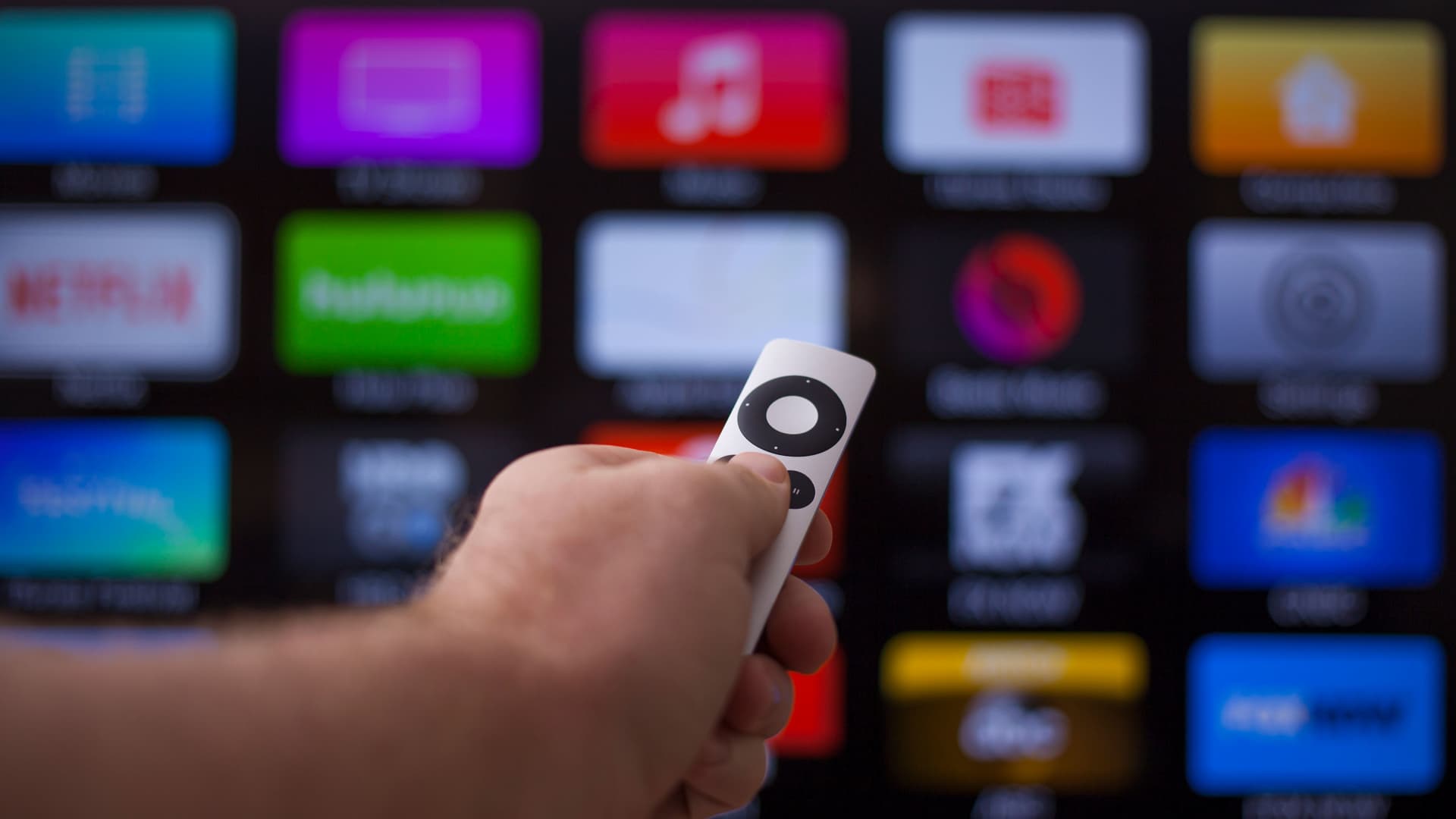Products You May Like
Every day the streaming landscape is looking more and more like the beast it sought to slay — cable.
Looming talks of platform bundles come as major streamers push ad-supported plans, limit password sharing and lean into live sports coverage. The goal of exponential subscriber growth, fueled by pandemic lockdowns, has shifted. Wall Street wants profits.
The key to that may be depth, not breadth.
Last year many streaming services began shrinking their once-robust content libraries in order to pay smaller licensing fees. (Streamers must pay to license even their own film and TV shows, like when NBC forked over $500 million to buy back the rights to “The Office,” an NBC show, in 2019.)
In the face of profit pressures and growing competition for viewers, streamers have taken to removing content to avoid the residual payments and licensing fees. That dynamic has split the major streaming companies into two camps: buyers and sellers.
On one side is Netflix, Amazon and Apple — companies that agnostically license content from other studios to bolster their streaming libraries. Then there’s Disney, Universal, Warner Bros. Discovery and Paramount, which rely on decades worth of legacy content to build out their own services and also generate capital by auctioning it off to the highest bidder.
“The brands that are acquiring those titles are thinking about how to operate more cost effectively by not creating things but by buying licenses,” said Stephanie Fried, chief marketing officer at Fandom, the world’s largest platform for entertainment fans.
The sellers get cash, while the buyers get content that has a track record of reliability and consumer value. That’s especially important for Netflix, which is a newer entrant in Hollywood, and as a result has fewer long-running, binge-able series. Just look at how NBC’s “Suits” took off on the service last year.
Notably, Netflix is already profitable. Amazon and Apple have said they see streaming as additive to their overall businesses, not core to them. The rest of the major streaming players are still working toward profitability.
Narrowing content libraries naturally means a need for differentiation.
The initial bloom of new platforms over the last 15 years saw most entrants take an “everything to everyone” approach, attempting to become the only streaming service you’d need. That meant, besides the user interface, most streaming services began to look alike over time.
Fried said this lack of distinction could ultimately be a negative as the landscape gets stretched thin. She suggested streamers look at the type of content their subscribers are consuming and pick up complementary shows and films that have not yet been licensed.
That model has worked well for smaller streaming services like BritBox, which has a wide swath of British dramas, mysteries and period pieces; and Shudder, which centers on the horror genre.
Netflix, for example, which has seen success from nostalgic sitcoms like “Friends” and “The Office,” could add on similar shows like Nickelodeon and Paramount’s “Fairly Odd Parents” and “Hey Arnold,” Disney’s “Boy Meets World” and “American Dad” as well as the NBC-owned “Saved by the Bell,” according to data from Fandom.
Fandom, which hosts more than 50 million wiki pages on entertainment properties across television, film, gaming, comics and more, has a “really good sense of the overlap between all of these walled gardens,” Fried said.
Original shows on Apple TV+ like “Severance,” “Defending Jacob,” “Home Before Dark” and “Servant” have enthralled and spooked viewers. That type of dark investigative thriller centered on character-driven narrative would pair well with the likes of Warner Bros. Discovery’s “The Leftovers,” Netflix’s “Haunting of Hill House” and the Disney-owned early seasons of “Twin Peaks,” Fried said.
Over at Amazon Prime Video, subscribers have opted for action-packed shows like “The Boys,” “Jack Ryan,” “Reacher” and “Invincible” as well as high fantasy series “The Rings of Power” and “Wheel of Time.” Fandom’s data suggests shows like Netflix’s “Jupiter’s Legacy,” Warner Bros. Discovery’s “My Adventures with Superman,” Paramount’s “Mayor of Kingstown” and Disney’s “The Americans” would further engage the streamer’s audience.
Similarly, Fandom’s data could tell streamers what types of shows they should invest in when looking to create new product.
On Disney+, family entertainment is everything. Fried noted that Disney’s best opportunity to differentiate itself is to double down on being the leader in kids and family-friendly content. Disney-owned Hulu, meanwhile, has seen success with “feel good” 30-minute sitcoms and prestige dramas, Fandom’s data shows. NBC’s “Parks and Recreation” and the ’90s version of “Fresh Prince of Bel-Air” alongside Paramount’s “The Nanny” could serve Hulu audiences well, according to Fandom, along with Netflix’s “Queen’s Gambit” and “Black Mirror” and the BBC show “Orphan Black.”
Universal’s Peacock is all about crime dramas and medical series, and Paramount+ is the place for viewers to get their sci-fi fix. At Warner Bros.’ Max, high-quality prestige shows have long been the bread and butter of HBO, and high fantasy entrants like “Game of Thrones” and “The Last of Us” have enticed younger audiences.
Doing well and doubling down in certain segments means keeping your viewers for longer, Fried said: “When they’re thinking about cutting your service it’s like, ‘I can’t, because they have all of my X type shows.”
Disclosure: Peacock is the streaming service of NBCUniversal, the parent company of CNBC.
